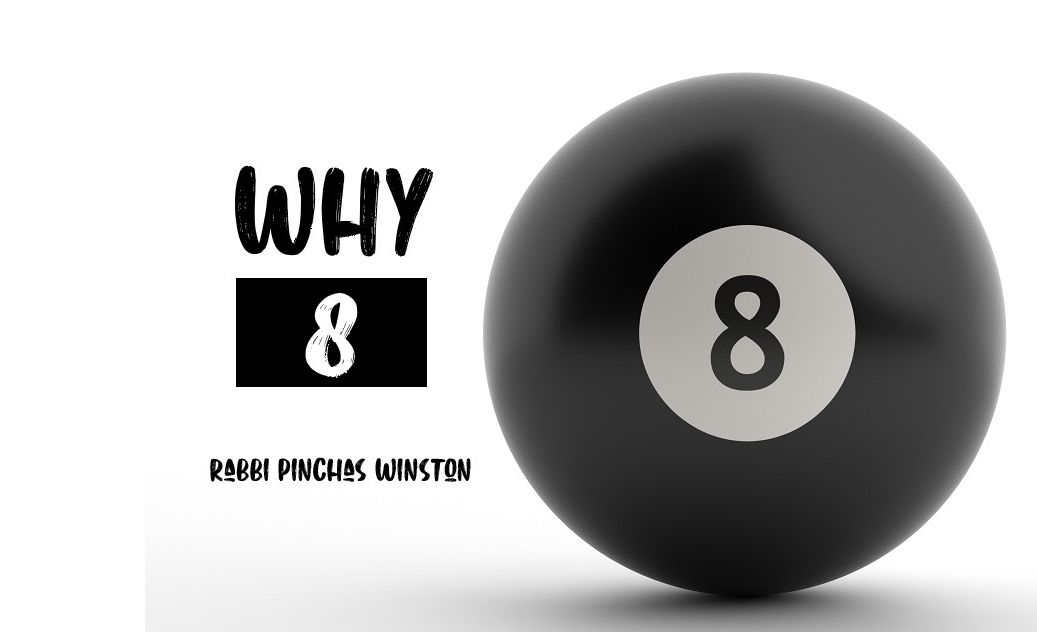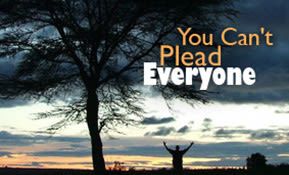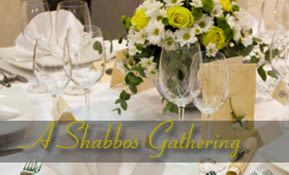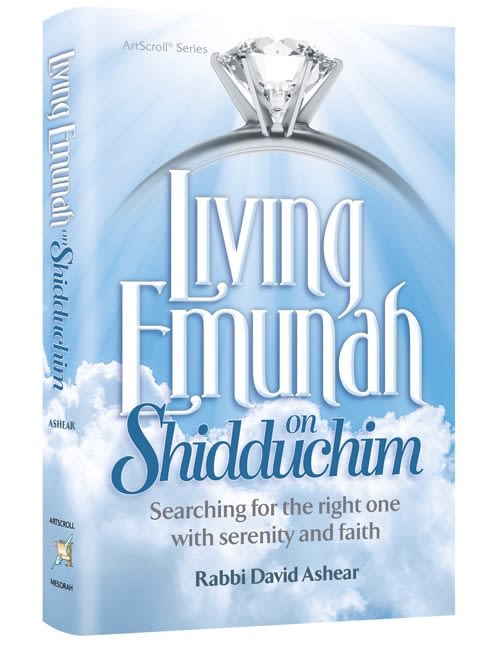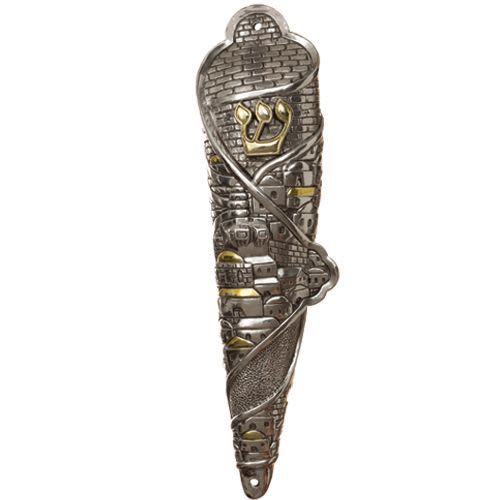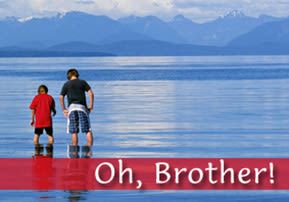
Vayishlach: Oh, Brother!
The struggle between Yaakov and Esav continues on throughout history; we are all confronted with a similar challenge...

Parshat Vayishlach
This week's parsha has Ya'akov approaching the borders of Eretz Canaan (Israel) on his return him from Padan Aram, and his Uncle Lavan's home. As Ya'akov told his wives, "Lavan doesn't look at me the way he used to …" a clear sign to move on. Relative or no relative, Lavan had been prepared to do away with Ya'akov in spite of all Ya'akov had done for him over the years (including being a blessing to have sons), and in spite of 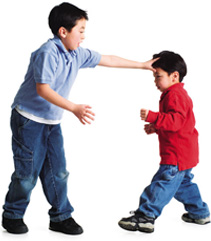 the fact that Ya'akov posed no threat to Lavan's empire. It had been a prototypical anti-Semitic scenario.
the fact that Ya'akov posed no threat to Lavan's empire. It had been a prototypical anti-Semitic scenario.
If you recall, Ya'akov had left home in the first place to flee from Eisav, after he took the latter's brochos (blessings). Rivka, through prophecy, found out about Eisav's secret desire to murder Ya'akov, and sent him on his way to her brother's house for protection (some protection!). Thirty-four years later, he had married two wives, become a father to eleven sons (and some daughters) and a wealthy man in his own right. Now, after the birth of Yosef, the time had come to clear up his rift with Eisav and return home, which, of course, meant confronting his angry brother on his way.
Or did it?
From the Chumash (Torah), it seems as if Ya'akov had no choice but to cross paths with Eisav if he wanted to return home. But the midrash tells a different tale; indeed, the midrash considered Ya'akov as someone who pulled the ear of an angry dog! In other words, after thirty-four years and his own success, Eisav cared very little about the "stolen" brochos, and even less about Ya'akov. It was Ya'akov who stirred up past sentiments by going out of his way to cause the confrontation with Eisav. The question is why?
The answer is crucial for understanding the test of every Jew. From the beginning, Ya'akov was Eisav's "twin" brother. Being a brother to Eisav was bad enough, but a twin brother! that was downright dangerous, because it meant that Ya'akov shared inborn characteristics with Eisav, like any twin brothers might.
This similarity became concretized when Ya'akov bought the birthright from Eisav, and then later took his brochos. What Ya'akov may not have been aware of at the time was that he was taking on more than the right of the firstborn, and his special spiritual blessing. As Ya'akov found out from Leah, he got far more than he had bargained for.
In last week's parsha, Ya'akov had asked Lavan for his daughter Rachel as a wife. Lavan complied, but, on the night of the wedding, Lavan switched Leah, his eldest daughter, for Rachel. The next morning, when Ya'akov discovered that he had married Leah instead of Rachel, he asked her how should could do it, to which she replied,
"What are you asking me about?"
"What do you mean what am I asking you about. You know full well that you were supposed to marry Eisav, not me!" Ya'akov countered.
"I did!" Leah argued.
"How's that?" Ya'akov asked confusedly.
Leah explained, "When you bought the birthright and took the blessings, you, for all intents and purposes, became Eisav!"
Leah was one-percent correct. Ya'akov had taken on Eisav's role as leader of the nation, as well as sage of the nation by becoming the firstborn. This was alluded to Yitzchak's statement two parshios (weekly readings) ago at the time Ya'akov dressed up as Eisav to fool his father into giving him the blessings. As Yitzchak felt the arms of Ya'akov, he commented and said:
כב וַיִּגַּ֧שׁ יַֽעֲקֹ֛ב אֶל־יִצְחָ֥ק אָבִ֖יו וַיְמֻשֵּׁ֑הוּ וַיֹּ֗אמֶר הַקֹּל֙ ק֣וֹל יַֽעֲקֹ֔ב וְהַיָּדַ֖יִם יְדֵ֥י עֵשָֽׂו:
"It is the voice of Ya'akov, but the hands of Eisav" (Bereishis 27:22).
In other words, Yitzchak was saying, "Whoever stands before me now can't be the Ya'akov I know, because he is a simple person who does little else other than learn Torah. It certainly can't be the Eisav I know, because he's not so quick to thank G-d for his successes. Whoever you are, you are a hybrid of the two!"
Thus, as different as Ya'akov felt from Eisav, he found out that there was a lot of Eisav within him, capable of rearing its ugly head at any momentof weakness, and especially among his descendants during the long exiles. Therefore, Ya'akov felt that for the sake of all his future descendants, he, personally, had to confront the Eisav within himself, to purge himself of is own "Eisavness" as much as he could.
Hence, Ya'akov's confrontation with Eisav was planned and unavoidable, at least from Ya'akov's point of view. For Ya'akov, it was a meeting with destiny, a moment to make the final break from Eisav-forever! And he had been right, for it led to his name being changed from Ya'akov to Yisroel, and it is only Ya'akov who was the twin brother of Eisav, not Yisroel. This is why the angel who changed his name said:
כט וַיֹּ֗אמֶר לֹ֤א יַֽעֲקֹב֙ יֵֽאָמֵ֥ר עוֹד֙ שִׁמְךָ֔ כִּ֖י אִם־יִשְׂרָאֵ֑ל כִּֽי־שָׂרִ֧יתָ עִם־אֱלֹהִ֛ים וְעִם־אֲנָשִׁ֖ים וַתּוּכָֽל:
"Your name shall no longer be called Ya'akov, but Yisroel, for you have struggled with G-d and with man, and have prevailed." (Bereishis 32:29)
However, the main struggle alluded to here was the inner struggle Ya'akov fought to cleanse himself of his similarity to Eisav in an attempt to locate his true identity … Yisroel!
The struggle that began with Ya'akov continues on throughout history into our own period of time, and perhaps, beyond it. We are all confronted with a similar struggle, to come to terms with what it means to be a true Jew through-and through. The question we must always ask ourselves is, "Am I more Ya'akov, or Yisroel?"
Have a great Shabbos, PW
***



